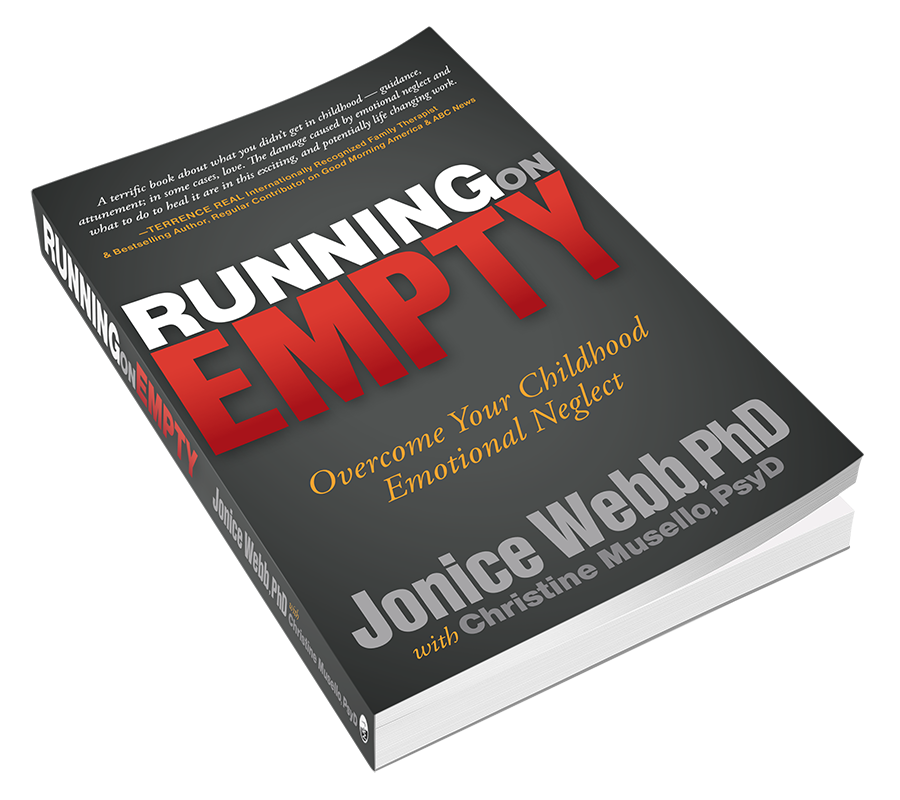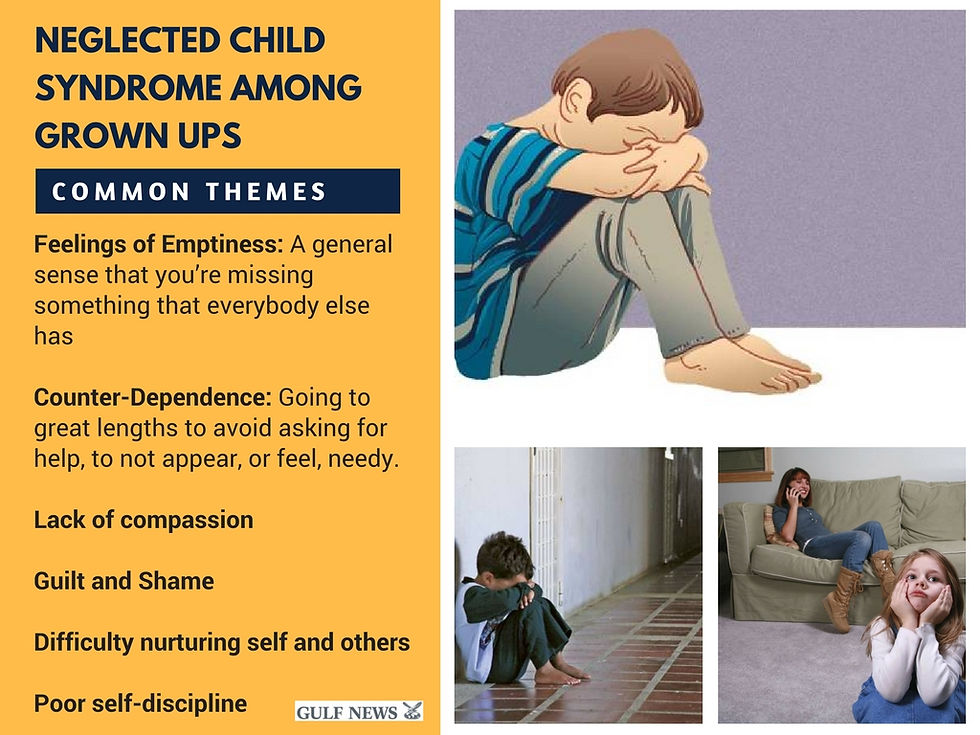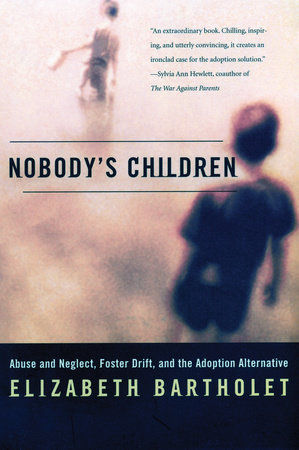Consequences of Childhood neglect related trauma on your life.
- Lætitia

- Oct 18, 2023
- 24 min read
Updated: Jun 16, 2025

Childhood neglect, a form of maltreatment where a child's basic needs for care and nurturing are not adequately met, can have profound and lasting effects on an individual's behavior, emotional well-being, and overall development. These effects can persist into adulthood, shaping how a person interacts with the world and the relationships they form. It's crucial to understand these consequences to address and support individuals who have experienced childhood neglect. Here's an in-depth exploration of the impact of childhood neglect on behavior.
Emotional and Psychological Impact
Attachment Issues
Childhood neglect can significantly disrupt the formation of secure attachments between a child and their primary caregivers, which can have profound and lasting effects on their emotional and social development and leading to difficulty trusting and forming close relationships in adulthood. Secure attachment is a fundamental building block for healthy relationships throughout a person's life, but childhood neglect can disrupt this critical aspect of development.
Lack of Responsive Caregiving
Neglect often involves caregivers who are emotionally unavailable or unresponsive to the child's needs. The absence of consistent, loving, and attentive caregiving can hinder the formation of a secure emotional bond.
Inconsistent or Absent Caregiver Responsiveness
Neglect can involve caregivers who are sometimes responsive but inconsistent in meeting the child's needs. The child doesn't learn to trust that their needs will be met consistently, leading to an insecure attachment style.
Disrupted Bonding Opportunities
It may prevent opportunities for bonding, such as feeding, soothing, and positive interactions. Without these bonding experiences, the child may struggle to form a secure emotional connection.

Inadequate Emotional Availability
Neglectful caregivers often lack emotional availability, failing to provide the child with a safe and secure emotional space to express feelings and needs. This absence of emotional attunement disrupts the development of secure attachment.
Limited Caregiver Sensitivity and Responsiveness
Neglectful caregivers may not recognize or respond to the child's emotional cues or distress signals appropriately. This lack of sensitivity and responsiveness can make the child feel ignored or unimportant.
Unpredictability and Anxiety
Neglect can create an unpredictable environment where the child never knows if their caregiver will be available or responsive. This unpredictability can instill anxiety and insecurity in the child, preventing the development of a secure attachment.
Negative Reinforcement of Attachment Behavior
If a child's attempts to seek comfort, attention, or care are consistently met with neglect, they may stop seeking attachment and may become emotionally withdrawn, leading to an insecure attachment.
Development of Avoidant or Ambivalent Attachment Neglect may lead to the development of avoidant attachment, where the child avoids seeking comfort or closeness, or ambivalent attachment, characterized by anxiety about the caregiver's availability and inconsistent response. As adults, they may continue this cycle and adopt an Avoidant or Ambivalent Attachment style towards those they care for.
Impact on Trust and Relationships
Over time, the child may find it difficult to trust others and form close relationships, as they have not learned to trust their primary caregivers due to neglect.
Long-Term Effects on Adult Relationships
Neglect-induced insecure attachment can affect adult relationships, making it challenging to form and maintain healthy, secure relationships in the future.

Low Self-Esteem
People who experienced neglect during their childhood can struggle with a diminished sense of self-worth in adulthood due to the emotional and psychological impact of their early experiences and due to the lack of emotional support and validation during their formative years. Childhood neglect, characterized by a lack of emotional, physical, or psychological care, can profoundly affect the development of a healthy self-esteem and self-concept.
Lack of Emotional Nurturing
Neglect often involves a lack of emotional responsiveness and nurturing from caregivers. The absence of love, validation, and emotional support can create feelings of being unimportant or unworthy of love in the child.
Absence of Validation and Recognition Neglected children may not receive acknowledgment or recognition for their achievements or efforts. This lack of validation can lead to feelings of inadequacy and a belief that their actions are inconsequential. As adult, they continue seeking validation and recognition endlessly.
Negative Self-Image
Children internalize their experiences, and if they consistently receive neglect or negative attention, they may develop a negative self-image. They may perceive themselves as unimportant, undeserving, or fundamentally flawed.

Comparisons and Criticism
Neglectful environments can involve comparisons to others or constant criticism. Children subjected to such comparisons may develop a belief that they are not as good as their peers, contributing to a diminished sense of self-worth.
Neglect can also disrupt the formation of a secure attachment with caregivers. Lack of a secure attachment can lead to difficulty in trusting and forming healthy relationships, further impacting self-worth.
Internalized Shame and Guilt
Neglected children may internalize the blame for their neglect, feeling guilty or ashamed for not receiving adequate care. This can result in a sense of unworthiness and self-blame.
Rejection and Abandonment Fear
Neglect can create a fear of rejection and abandonment. This fear may persist into adulthood, making it challenging to form close relationships and leading to feelings of unworthiness.
Limiting Beliefs
Children often adopt the beliefs and attitudes modeled by their caregivers. In a neglectful environment, they may adopt limiting beliefs about their abilities, worth, and potential for success.
Impact on Identity Formation Childhood is a critical period for identity formation. Neglect disrupts the development of a healthy identity, making it difficult for individuals to develop a strong sense of self and self-worth.

Long-Term Emotional Consequences
Over time, the emotional consequences of neglect can accumulate, leading to chronic low self-esteem and a diminished sense of self-worth that persists into adulthood.
Therapy and counseling could help to unpack these early experiences, challenge limiting beliefs, and develop healthy coping strategies to rebuild their self-esteem and sense of self-worth.
Anxiety and Depression
Childhood neglect can be linked to higher rates of anxiety and depression in adulthood through various psychological, physiological, and sociological mechanisms due to the chronic stress and emotional deprivation experienced. The impact of neglect during critical developmental stages can have lasting effects on a person's mental health, shaping their emotional responses, self-perception, and ability to cope with stress. Here's a closer look at how childhood neglect can contribute to anxiety and depression in later life.
Attachment and Trust Issues
Neglect can disrupt the development of a secure attachment between a child and their primary caregiver. This lack of a secure base can lead to difficulties trusting and depending on others in adulthood, contributing to anxiety.
Emotional Dysregulation
Neglect denies a child the opportunity to learn how to manage and regulate their emotions effectively. As a result, they may struggle to understand and cope with their feelings in healthy ways, predisposing them to anxiety and depression.

Low Self-Esteem and Negative Self-Image
Childhood neglect often leads to a poor sense of self-worth and a negative self-image. People who have experienced neglect may believe they are unworthy of love or care, which can contribute to feelings of anxiety and depression.
Chronic Stress and Hyperarousal
Living in a neglectful environment can expose a child to chronic stress. The ongoing activation of the body's stress response system can lead to a state of hyperarousal, making them more susceptible to anxiety disorders.
Unresolved Trauma and Flashbacks Childhood neglect can be a form of trauma. Unresolved trauma from neglect can manifest as intrusive memories, flashbacks, nightmares, and severe anxiety, all of which are linked to anxiety and depressive disorders.
Interpersonal Challenges and Social Isolation
Neglect often results in poor social skills and difficulties in forming and maintaining relationships. Social isolation or challenges in social interactions can contribute to feelings of anxiety and depression.
Cognitive Processing and Negative Thinking Patterns
Neglect can shape cognitive processing in a way that people may develop negative thinking patterns, such as catastrophizing or rumination. These patterns are often associated with anxiety and depression.
Maladaptive Coping Strategies
Those who experienced childhood neglect may develop maladaptive coping strategies, such as substance abuse or self-harm, as ways to manage the emotional pain they carry. These strategies can exacerbate anxiety and depression.
Health-Related Behaviors
Childhood neglect can influence health-related behaviors, like lack of exercise, poor diet, or substance use, which can, in turn, affect mental health and contribute again to anxiety and depression.

Social and Relationship Effects
Difficulty in Relationships
Childhood neglect can significantly impact an individual's ability to build and maintain relationships throughout their life, often resulting from a fear of abandonment or a belief of being unworthy of love. Relationships, whether romantic, platonic, or professional, require a foundation of trust, empathy, and effective communication. When these fundamental aspects of healthy relationships are lacking due to childhood neglect, challenges can arise in forming and sustaining meaningful connections.
Trust Issues Neglect can cause a lack of trust in others, particularly in those who were meant to provide care during childhood. This lack of trust can carry into adulthood, making it difficult for them to trust and open up to others in relationships.
Fear of Abandonment
Childhood neglect often involves emotional abandonment, where the child's needs for love, attention, and care go unmet. This can lead to a fear of abandonment in adult relationships, causing them to withdraw emotionally to protect themselves from potential pain.
Difficulty Expressing Emotions
Neglect can inhibit the development of healthy emotional expression and regulation. Adults who experienced neglect may struggle to communicate their feelings effectively or may suppress their emotions, making it challenging to form close emotional connections.
People may doubt their worthiness of love and positive relationships, making it difficult for them to believe that others could genuinely care for them.

Social Isolation and Withdrawal
Neglected children often learn to be self-sufficient and may withdraw socially to avoid potential rejection or disappointment. This learned behavior can persist into adulthood, leading to social isolation and difficulty in forming relationships.
Difficulty with Intimacy and Vulnerability
Neglect can make it hard for people to be vulnerable and intimate in relationships. Fear of being hurt or rejected can prevent them from fully opening up and allowing others to get close emotionally.
Unhealthy Relationship Dynamics
Adults who experienced neglect may have witnessed unhealthy relationship dynamics during their upbringing. Without positive examples, they may inadvertently replicate these dynamics in their own relationships.
Childhood neglect often leads to insecure attachment styles, such as avoidant or anxious attachment. These attachment styles can hinder the ability to form secure and fulfilling relationships, causing distance or emotional dependency.
Communication Challenges
Neglect may not have provided opportunities to develop effective communication skills. Consequently, they may struggle with expressing themselves, understanding others, or resolving conflicts in relationships.
Without conscious intervention, those who experienced neglect may unconsciously repeat similar neglectful patterns in their relationships, perpetuating a destructive cycle.
Seeking therapy, counseling, or support groups can be instrumental in addressing these issues, healing emotional wounds, and learning healthier relationship skills to foster meaningful and fulfilling connections.
Isolation and Loneliness
When people who experienced childhood neglect isolate themselves to avoid potential rejection or due to a lack of social skills, it can have a profound and lasting impact on their adult life across various domains. Social isolation and a deficiency in social skills can significantly impede personal, emotional, professional, and psychological growth, leading to a range of challenges.
Mental Health Issues
Isolation can contribute to the development or exacerbation of mental health conditions like depression, anxiety disorders, and even suicidal ideas or actions due to feelings of loneliness and inadequacy.

Limited Support Network
Lack of social connections means fewer people to turn to for emotional support, advice, or assistance during challenging times, making it harder to navigate life's ups and downs.
Impaired Coping Skills
Isolation can prevent them from developing healthy coping mechanisms. They may resort to unhealthy coping strategies such as substance abuse, self-harm, or avoidance, further exacerbating their mental health struggles.
Career Challenges
Social skills are crucial for professional success. Difficulty in forming and maintaining relationships can limit networking opportunities, hinder collaboration, and impede career growth.
Impacted Interpersonal Relationships
Isolation can affect the ability to form and sustain romantic relationships or friendships, leading to feelings of loneliness, increased risk of relationship dissatisfaction, and potential perpetuation of the cycle of neglect in their own families.
Stunted Emotional Growth Isolation can inhibit emotional growth and understanding of oneself and others. Lack of exposure to diverse perspectives and emotions can hinder the development of empathy and emotional intelligence.

Difficulty in Expressing Emotions
Social isolation can limit opportunities to express emotions in a healthy manner, hindering the development of emotional regulation and communication skills.
Self-Esteem Issues
Isolation can contribute to low self-esteem and a negative self-image, reinforcing the belief that they are unworthy of meaningful relationships or that others won't value them.
Health Consequences
Social isolation has been linked to adverse physical health effects like increased stress levels, cardiovascular problems, compromised immune function, and a shorter lifespan.
Reduced Quality of Life
Overall, social isolation can significantly diminish the quality of life, impacting happiness, life satisfaction, and overall well-being.
Addressing the impacts of social isolation and deficient social skills requires a holistic approach involving therapy, support groups, skill-building workshops, and gradual exposure to social interactions. Rebuilding social skills, learning to manage social anxiety, and seeking therapy to work through past neglect can empower individuals to form meaningful relationships and lead fulfilling adult lives. Yes, it is a slow process...

Repetition of Patterns
Adults who experienced neglect during their own childhood may unknowingly repeat neglectful patterns in their relationships or parenting styles due to the powerful impact of early experiences on their behaviors, beliefs, and interpersonal dynamics. This cycle of neglect can persist across generations because of :

Modeling Behavior
Children often model their behaviors and parenting styles after what they experienced in their own family. If neglect was a part of their upbringing, they may inadvertently replicate these patterns in their own relationships and parenting.
Normalization of Neglect For people who grew up in neglectful environments, neglect might seem normal or familiar. They may not recognize neglectful behaviors as problematic because it was their "normal" during childhood.
Limited Awareness of Healthy Parenting Practices
People who experienced neglect may not have witnessed or experienced healthy parenting practices. As a result, they may lack awareness of what constitutes appropriate care, attention, and nurturing for their children.

Lack of Positive Role Models
A lack of positive role models or access to healthy adult relationships during childhood can leave them without examples of nurturing, supportive, and caring behaviors to emulate in their own relationships and parenting.
Unresolved Trauma and Emotional Issues
Unresolved emotional trauma from childhood neglect can manifest as challenges in regulating emotions and forming healthy relationships. This can make it difficult for them to provide consistent and appropriate care to their own children.
Impact on Self-Esteem and Self-Worth
Childhood neglect can severely impact self-esteem and self-worth. People with low self-esteem may struggle to believe they are capable of providing adequate care to their children, perpetuating neglectful patterns.
Coping Mechanisms and Stress Response
Neglect may have led to the development of maladaptive coping mechanisms and unhealthy stress responses. In times of stress, some may revert to these patterns, which could inadvertently harm their relationships and parenting behaviors.
Cognitive Schemas and Beliefs Cognitive schemas, or mental frameworks, developed during childhood can shape how people perceive and interact with the world. If these schemas were formed in a neglectful environment, they may perpetuate neglectful behaviors in adulthood.

Breaking this cycle of neglect often requires self-awareness, therapy, education on healthy relationships and parenting, and a strong commitment to change. Recognizing the negative impact of childhood neglect and seeking support to address the underlying issues can help to develop healthier relationships and parenting styles for the well-being of families.
Cognitive Impact
Impaired Cognitive Development
Childhood neglect can hinder cognitive growth, leading to academic and intellectual challenges later in life through various interconnected mechanisms. Cognitive development, which includes the acquisition of knowledge, critical thinking skills, memory, and problem-solving abilities, largely depends on a nurturing and stimulating environment during childhood. When a child experiences neglect, essential cognitive processes and opportunities for growth are compromised.
Limited Intellectual Stimulation
Neglected children may not be exposed to intellectually stimulating activities, discussions, or educational materials. The absence of such stimulation can limit the development of critical thinking, curiosity, and a thirst for knowledge.
Emotional Stress and Trauma Chronic emotional stress and trauma resulting from neglect can significantly impact brain development. Stress hormones can impair the brain's ability to focus, learn, and retain information, affecting academic and professional performance.

Reduced Learning Opportunities
Neglect can lead to irregular attendance at school or hinder participation in extracurricular activities. Limited access to consistent learning opportunities affects the accumulation of academic knowledge and skills.
Inadequate Nutrition and Health Care
Neglected children may suffer from inadequate nutrition and healthcare, which are crucial for proper brain development. Malnutrition can lead to cognitive impairments, impacting learning, memory, and overall cognitive abilities.
Negative Impact on Executive Functions Executive functions, including working memory, attention control, and cognitive flexibility, are essential for academic success. Neglect can hinder the development of these functions, making it challenging for people to organize thoughts, plan tasks, and sustain attention.
Attachment and Social Development
Neglect often leads to insecure attachment styles and difficulties in forming and maintaining relationships. Positive social interactions are vital for cognitive development, as they encourage communication, language skills, and emotional intelligence.
Reduced Language Acquisition and Expression
Neglected children may have limited exposure to language-rich environments or conversations. Language development can be hampered, affecting reading comprehension, writing abilities, and overall academic performance.
Limited Access to Education and Resources
Neglect can result in limited access to books, educational materials, and a conducive learning environment at home. This lack of resources can hinder a child's ability to engage with academic content and cultivate a love for learning.
Lowered Self-Esteem and Self-Concept
Neglect can significantly impact self-esteem and self-concept. People with low self-esteem may doubt their academic abilities, leading to disinterest in education and a decline in academic performance.
Coping Mechanisms and Distractions
Neglected children may develop maladaptive coping mechanisms or distractions as a way to deal with emotional pain, inhibiting their ability to concentrate on academics and intellectual pursuits.
Early intervention, supportive environments, access to quality education, therapy, and emotional healing can help mitigate the adverse effects of childhood neglect on cognitive growth. These interventions aim to provide neglected individuals with the necessary tools and opportunities to enhance their cognitive abilities, allowing them to overcome academic challenges and achieve their full potential.

Difficulty with Problem-Solving
People who experienced neglect during their childhood can struggle with problem-solving and decision-making skills due to the lack of essential guidance, support, and opportunities to develop these cognitive abilities. Childhood neglect can severely hinder the development of crucial executive functions and cognitive processes necessary for effective decision-making and problem-solving.
Lack of Guidance and Modeling
Neglectful environments often lack parental guidance and role modeling essential for teaching problem-solving and decision-making strategies. Children need guidance to learn how to analyze situations and make informed choices.
Limited Cognitive Stimulation
Neglect can limit exposure to intellectually stimulating activities and environments that encourage critical thinking and problem-solving. Without these stimuli, the development of cognitive skills can be stunted.

Emotional and Psychological Stress
Growing up in a neglectful environment often involves chronic stress and emotional trauma. Persistent stress can impair cognitive function, making it challenging to think clearly and make effective decisions.
Inconsistent Decision-Making Models
Neglected children may observe inconsistent or irrational decision-making by their caregivers. This can lead to confusion and an inability to grasp the principles of sound decision-making.
Difficulty in Identifying and Evaluating Options
Neglect can affect the ability to identify and evaluate available options when faced with a problem or decision. Children may not learn how to analyze situations and weigh the pros and cons of various choices.
Impaired Problem-Solving Strategies
Neglect limits exposure to problem-solving opportunities, hindering the development and refinement of effective problem-solving strategies and techniques.
Lack of Confidence in Abilities
Childhood neglect can erode self-confidence and self-efficacy. People may doubt their abilities to solve problems and make sound decisions, leading to hesitancy and indecisiveness.
Avoidance Coping Mechanisms
In neglectful environments, they may develop avoidance coping mechanisms to deal with problems or decisions, avoiding them rather than confronting and solving them.
Impact on Executive Functioning Neglect can affect the development of executive functions in the brain, including attention, memory, and cognitive flexibility, which are essential for effective problem-solving and decision-making.
Perception of Control and Agency
Neglect can lead to a diminished sense of control and agency over one's life. They may feel helpless and perceive their actions as having little impact, affecting their belief in their ability to solve problems.
Addressing these challenges involves comprehensive support and interventions focused on enhancing cognitive skills, boosting self-confidence, teaching effective decision-making strategies, and providing opportunities for problem-solving. Therapy, education, mentorship, and practical life skills training can all play crucial roles in improving problem-solving and decision-making skills.

Behavioral Consequences
Risk-Taking Behaviors
Some who experienced neglect during childhood may engage in risky behaviors as a way to seek excitement, validation, or a sense of control that was lacking during their formative years. Childhood neglect can have a profound impact on an individual's emotional and psychological development, shaping their behaviors and choices in adulthood.
Seeking Stimulation and Excitement
Childhood neglect can result in emotional numbness or a lack of stimulation during critical developmental stages. Engaging in risky behaviors may provide an adrenaline rush and excitement that was missing during their neglected upbringing.
Desire for Attention and Recognition
Neglect often involves a lack of attention, validation, and praise from caregivers. Seeking risky behaviors can be a way to garner attention, even if negative, as it fulfills the desire to be noticed and acknowledged.
Rebellion and Independence
Neglected children may grow up feeling a lack of control and independence. Engaging in risky behaviors can be a form of rebellion against the restrictions they faced during their neglected upbringing, asserting their independence and autonomy.
Attempt to Fill an Emotional Void Childhood neglect can create a deep emotional void that some people attempt to fill through risky behaviors. They might believe that engaging in these behaviors will provide temporary relief from emotional pain or emptiness.

Self-Destructive Coping Mechanism
Some who experienced neglect may have internalized a sense of worthlessness or self-blame. Engaging in risky behaviors can be a self-destructive coping mechanism, a manifestation of low self-esteem, and a reflection of their perceived lack of value.
Chasing Validation and Approval
People who were neglected may seek validation and approval they never received during childhood. Risky behaviors might be an attempt to prove their worth or gain recognition from peers or society.
Form of Self-Sabotage
Childhood neglect can lead to a pattern of self-sabotage as they may struggle with success or positive outcomes due to their negative self-perception. Engaging in risky behaviors can undermine their progress, aligning with their subconscious belief of unworthiness.
Recreating Familiar Patterns
Some people unknowingly recreate familiar patterns from childhood in their adult life. If neglect was a constant presence during childhood, engaging in risky behaviors can perpetuate this familiar, albeit negative, pattern.
Inability to Assess Risks Adequately
Neglect may not have provided the opportunity to learn how to assess and mitigate risks effectively. Consequently, some might engage in risky behaviors without fully understanding the potential consequences.
Understanding the underlying motivations behind risky behaviors is crucial for developing effective interventions and strategies to help individuals heal from their past experiences of neglect and redirect their impulses towards healthier outlets for excitement, validation, and fulfillment.
Substance Abuse

Childhood neglect can significantly increase the risk of substance abuse later in life as people may turn to drugs or alcohol as a way to cope with the emotional pain and trauma they experienced during their formative years. The impact of neglect can leave deep emotional scars that they may attempt to numb or alleviate through substance use.
Emotional Pain and Trauma
Childhood neglect often leads to emotional pain and trauma, including feelings of abandonment, rejection, and worthlessness. Substance abuse can provide a temporary escape from these distressing emotions.
Lack of Healthy Coping Mechanisms
Neglected children may not have been taught healthy coping strategies to deal with emotional pain and stress. Drugs or alcohol may later become a readily available and seemingly effective way to manage their emotional turmoil.
Self-Medication for Mental Health Issues
Neglect can contribute to the development of mental health issues such as depression, anxiety, and post-traumatic stress disorder (PTSD). They may turn to substances to self-medicate and alleviate their psychological symptoms.

Attempt to Fill the Emotional Void
Neglect often creates a deep emotional void within individuals. Drugs or alcohol can be used as a way to temporarily fill this void, providing a false sense of relief and fulfillment.
Peer Influence and Social Acceptance
Neglected people may struggle with forming healthy relationships and seeking validation. Substance abuse can be a way to fit into social groups or gain acceptance, even if it's within a substance-using peer group.
Rebellion and Defiance
Childhood neglect can lead to feelings of frustration and helplessness. Substance use may represent a form of rebellion against the neglectful environment or caregivers, asserting a sense of control.
Escaping Dysfunctional Environments
Neglectful environments may be chaotic, unstable, or dysfunctional. Substance use can be a way to escape these environments temporarily and cope with the stress and unpredictability.
Lack of Structure and Guidance
Neglect can result in a lack of structure and guidance during childhood. This absence of guidance may leave them more susceptible to peer pressure and experimentation with substances.
Vulnerability to Peer Influence
Neglected people, seeking connection and acceptance, may be vulnerable to peer influence. If their peers are engaging in substance abuse, they might be more likely to follow suit.
Addressing substance abuse in people who experienced childhood neglect necessitates a comprehensive approach involving therapy, counseling, addiction treatment programs, and support groups. Understanding the underlying trauma and providing healthy coping mechanisms can significantly contribute to their recovery and healing process.
Aggression or Withdrawal

Neglected people can exhibit both aggression and withdrawal as they struggle to regulate their emotions and reactions effectively. Childhood neglect can profoundly impact emotional and behavioral regulation, leading to various coping mechanisms and responses to their past experiences. Here's how neglect can manifest in terms of aggression and withdrawal:
Aggression
Neglected people may display aggression as a way to express their frustration, anger, or emotional pain resulting from their neglectful experiences. The inability to process and regulate these intense emotions can lead to outbursts, verbal or physical aggression, and confrontational behavior.
Expression of Unmet Needs
Neglect often involves unmet emotional and physical needs during childhood. This unfulfilled longing for care, attention, and love can manifest as aggressive behavior, a way to demand or assert their needs, albeit in a maladaptive manner.
Difficulty in Conflict Resolution
Neglect may not have allowed for healthy conflict resolution models to be developed. As a result, some may resort to aggression as a means to cope with conflicts, unable to handle disagreements or frustrations calmly.
Defensive Mechanism
Aggression can serve as a defensive mechanism for some. They may use aggression as a way to protect themselves from further emotional pain, rejection, or vulnerability, creating a façade of strength and power.
Communication Barrier Neglect can hinder the development of effective communication skills. Aggressive behavior might become a way for neglected people to communicate their needs, emotions, or boundaries when they lack the ability to do so assertively or articulately.
Impact on Peer and Social Interactions
Aggression can affect their ability to form and maintain healthy relationships. The fear of rejection or abandonment from past neglect can exacerbate aggressive behavior, making it difficult to develop positive social connections.
Withdrawal and Isolation
Neglect can also lead to withdrawal and social isolation as people struggle to regulate their emotions and reactions effectively. They may retreat from social interactions to protect themselves from potential emotional harm.

Avoidance of Vulnerability
Neglected people might view aggression as a way to avoid being vulnerable and getting hurt again. The fear of vulnerability can drive them to display aggression as a defense mechanism.
Impact on Emotional Regulation
Neglect can impair emotional regulation skills, making it challenging for them to manage their feelings effectively. This can result in explosive anger or aggression when faced with emotional triggers.
Understanding these manifestations of neglect-related behaviors is crucial for developing appropriate interventions, therapies, and support systems. Therapy aimed at building emotional regulation skills, teaching healthy coping mechanisms, and providing a safe space for expression can help them manage aggression and withdrawal in more adaptive and constructive ways.

Physical Health Effects
Chronic Health Issues
Childhood neglect can indeed be linked to chronic health conditions in adulthood, including heart disease, obesity, autoimmune disorders, and other serious health issues. These connections are complex and involve a range of physiological, psychological, and behavioral factors.
Chronic Stress and Cortisol Dysregulation Childhood neglect often subjects people to chronic stress, leading to dysregulation of the stress hormone cortisol. Prolonged elevated levels of cortisol can disrupt the body's normal functioning, affecting metabolism, immune response, and cardiovascular health.

Altered Brain Structure and Function
Neglect during critical periods of brain development can affect the brain's structure and function, particularly in regions that regulate stress response, emotions, and impulse control. These alterations can influence behaviors related to overeating, substance abuse, and self-destructive habits, contributing to health issues.
Impact on Health Behaviors
They may adopt unhealthy coping mechanisms, such as poor dietary habits, lack of exercise, or substance abuse, as a way to cope with the emotional pain and trauma from neglect. These behaviors significantly increase the risk of chronic health conditions.
Maladaptive Coping Strategies
Childhood neglect can lead to the development of maladaptive coping strategies, including overeating, smoking, or excessive alcohol consumption, which are linked to obesity, heart disease, and other health problems.
Inadequate Nutrition and Physical Health Care
Neglected children often lack access to adequate nutrition, healthcare, and preventive health measures. Poor nutrition and inadequate healthcare during critical developmental stages can increase the risk of obesity, diabetes, cardiovascular issues, and weakened immune systems in adulthood.
Impact on Sleep Patterns
Neglect can lead to disrupted sleep patterns and inadequate rest, impacting overall health. Poor sleep quality or insufficient sleep is associated with various chronic health conditions, including obesity and cardiovascular diseases.
Hypervigilance and Chronic Inflammation Neglect can lead to hypervigilance, a state of constant alertness and heightened stress response. This chronic state of arousal can lead to long-term inflammation, which is linked to various chronic health conditions, including autoimmune disorders.
Psychosocial Factors and Social Isolation
Childhood neglect often contributes to psychosocial factors such as low self-esteem, depression, anxiety, and social isolation. These factors can directly impact physical health, including cardiovascular health and immune function.
Epigenetic Changes
Neglect and early-life stress can cause epigenetic changes, altering gene expression without changing the underlying DNA sequence. These changes can influence how the body responds to stress, inflammation, and various health risk factors.
Addressing the long-term health consequences of childhood neglect requires a multidisciplinary approach, including trauma-informed therapy, medical care, healthy lifestyle interventions, and social support.

Compromised Immune System
Childhood neglect-induced stress can weaken the immune system, making people more susceptible to illnesses and infections through a complex interplay of physiological, hormonal, and psychological factors. Here's how chronic stress resulting from childhood neglect affects the immune response.
Hormonal Changes
Chronic stress activates the body's "fight-or-flight" response, leading to the release of stress hormones such as cortisol and adrenaline. Prolonged elevation of cortisol can suppress the immune system's inflammatory response and impair immune cell functioning.
Inflammation Dysregulation Chronic stress contributes to a state of chronic low-grade inflammation in the body. This prolonged inflammation can disrupt the immune system's balance, impairing its ability to respond effectively to infections and illnesses.

Impact on Immune Cell Function
Chronic stress can influence immune cell function, particularly T cells and natural killer cells. These cells play a crucial role in defending the body against pathogens. Chronic stress can reduce the production and efficiency of these immune cells.
Reduced Antibody Response
Chronic stress can hinder the body's ability to produce adequate antibodies, which are essential for recognizing and neutralizing pathogens like bacteria and viruses. This reduction in antibody response weakens the immune defense against infections.
Weakened Physical Barrier Functions
Chronic stress can impair the function of physical barriers like the skin and mucous membranes, making it easier for pathogens to enter the body and cause infections.
Impact on Gut Health Chronic stress can disrupt the gut-brain axis, affecting gut health. The gut is a significant part of the immune system. Stress-induced alterations in gut microbiota can compromise the immune response and increase susceptibility to infections.
Altered Cytokine Levels
Chronic stress can influence cytokine production, molecules that regulate immune responses. Imbalanced cytokine levels can disrupt the immune system's ability to mount an appropriate response against infections.
Suppressed Vaccine Response
Chronic stress can dampen the body's response to vaccines, reducing their efficacy. This compromised response can leave them more susceptible to preventable infections.
Sleep Disruption and Fatigue
Chronic stress often leads to sleep disturbances and fatigue. Inadequate sleep weakens the immune system, reducing its ability to fight off infections and illnesses.
Psychological Factors
The psychological impact of childhood neglect, such as anxiety, depression, and feelings of helplessness, can further weaken the immune system. Mental health struggles can significantly affect overall well-being and immune function.
Addressing childhood neglect-induced stress and its impact on the immune system requires comprehensive approaches, including trauma-informed therapy, stress-reduction techniques, a healthy lifestyle, regular exercise, and proper nutrition. Managing stress effectively is crucial for bolstering the immune system and maintaining overall health and well-being.
Survival Strategies and Coping Mechanisms
Hypervigilance

Neglected children can indeed develop a hypervigilant state, constantly on alert for potential threats or dangers. Childhood neglect, characterized by a lack of consistent care, attention, emotional support, and a nurturing environment, can have profound and lasting impacts on a child's psychological and emotional development. One of these impacts is the development of hypervigilance, a state of heightened alertness and sensitivity to potential dangers in their surroundings.
Lack of Predictability and Stability
Neglected children often experience an unpredictable and unstable environment, not knowing when their needs will be met or when they might face neglect or abandonment. This uncertainty leads to a constant state of alertness.
Need for Self-Preservation
When neglected, children learn to rely on themselves for basic needs and emotional support, fostering a survival instinct that makes them hyper-aware of their surroundings and potential threats.
Fear of Harm and Abandonment
Neglected children often harbor a deep-rooted fear of harm or abandonment due to their past experiences. This fear keeps them vigilant, always on the lookout for signs of danger or neglect.
Emotional Instability and Anxiety
The emotional neglect experienced during childhood can lead to anxiety and emotional instability. Hypervigilance is a way to cope with this emotional turmoil and maintain a sense of control over their environment.
Difficulty Trusting Others
The lack of a trustworthy caregiver during crucial developmental stages can result in a general mistrust of others. Neglected children may find it hard to rely on or trust people, contributing to a hypervigilant state.

Anticipating and Mitigating Potential Threats
Hypervigilance becomes a mechanism for neglected children to anticipate potential threats and take precautionary measures to mitigate them. They may become overly cautious and anxious in various situations.

Hypersensitivity to Cues and Triggers
Neglected children can become hypersensitive to cues, body language, and environmental triggers, always scanning for signs of danger or neglect as a result of their past experiences.
Addressing the hypervigilant state in neglected children requires a trauma-informed approach, providing a safe and nurturing environment, therapy, and interventions that help them process their experiences and develop healthy coping mechanisms. Over time, with the right support and care, these children can learn to regulate their hypervigilance and navigate the world in a more balanced and secure manner.
Self-Sufficiency
Some people often develop self-sufficiency as a coping mechanism, learning to rely only on themselves for their needs. When a child experiences neglect, which involves an absence of consistent care, attention, and emotional support, they are left to fend for themselves and meet their own needs. As a result, they learn to rely on their own resources and develop a strong sense of self-sufficiency as a survival strategy to cope with the lack of care and support from their caregivers. Here's how this coping mechanism manifests:
Meeting Basic Needs
Neglected children frequently learn to meet their basic needs such as food, shelter, and safety independently because these needs may not consistently be provided by their caregivers.
Handling Emotional Needs
Since emotional support and comfort are often lacking in a neglectful environment, these children learn to self-soothe and manage their emotional needs on their own.
Problem-Solving Skills
The need to navigate challenges alone fosters problem-solving skills. Neglected children become adept at finding solutions and making decisions independently.
Seeking Knowledge and Skills To compensate for the lack of guidance, neglected people may develop a strong drive to seek knowledge and acquire skills, aiming to equip themselves with the tools necessary to navigate life autonomously.

Creating a Sense of Control
Self-sufficiency provides a sense of control in a chaotic or unpredictable environment. It allows neglected people to exert some authority over their lives and circumstances.
Building Independence and Autonomy
Neglected children may become fiercely independent, valuing and cultivating their autonomy as a way to protect themselves from potential disappointment or neglect.
Difficulty Trusting Others
The lack of reliable care can lead to difficulty trusting others. Neglected people may become hesitant to depend on others, reinforcing their self-sufficient approach.
Limited Reliance on Relationships Due to past experiences of neglect, these people may struggle to rely on others for support, preferring to handle challenges on their own.
While self-sufficiency is a valuable coping mechanism in challenging circumstances, it's important to note that an overemphasis on self-sufficiency can also lead to difficulties in seeking and accepting help, forming healthy relationships, and sharing burdens with others. Overcoming the challenges associated with childhood neglect often involves a therapeutic approach that encourages these people to balance their self-sufficiency with an ability to trust, connect, and seek support from others when needed.
Understanding the consequences of childhood neglect is essential for developing effective interventions and providing appropriate support to survivors.
Therapy, trauma-informed care, cognitive-behavioral approaches, and mindfulness techniques are among the effective strategies to address the long-term mental health effects of childhood neglect and promote healing and resilience. Counseling, support groups, and trauma-informed care can all play crucial roles in helping individuals heal and develop healthier behavioral patterns and relationships. It's important to approach those who have experienced neglect with compassion, understanding, and a commitment to helping them navigate the long-lasting effects of their early experiences.

Act now
LGS Solutions provides all these aspects into a personalized holistic approach to each client to reshape and optimize their process as they desire.









How Childhood Emotional Neglect Works and Why It Transfers Through Generations
by Jonice
https://drjonicewebb.com/how-childhood-emotional-neglect-works-and-why-it-transfers-through-generations/
Thank you for the good advice and the compassion, I dearly needed it.
Looking forward next call.